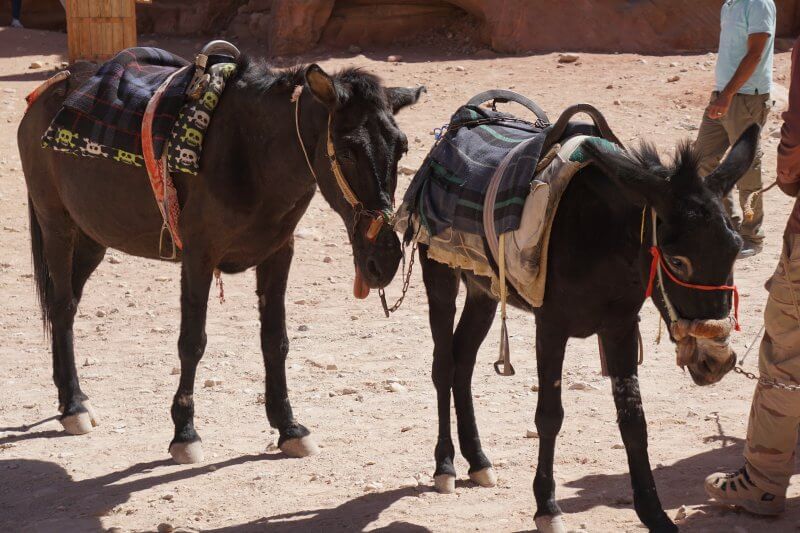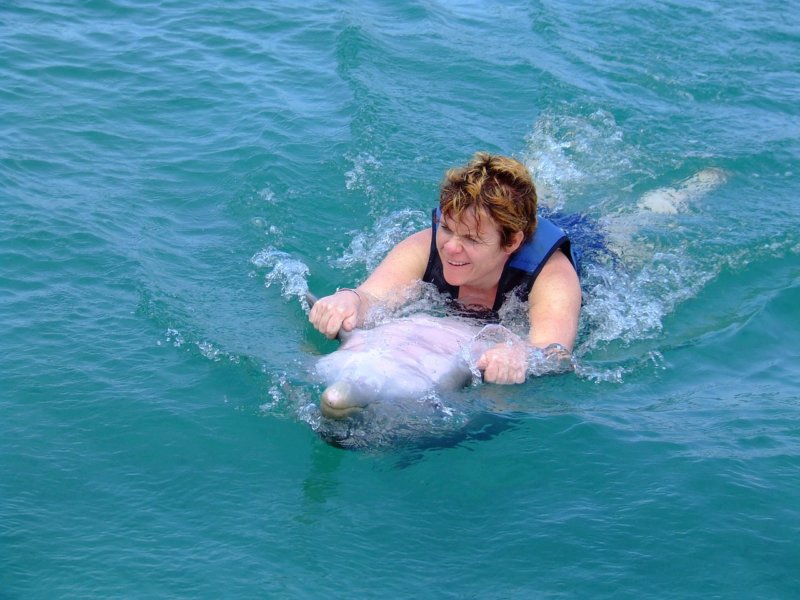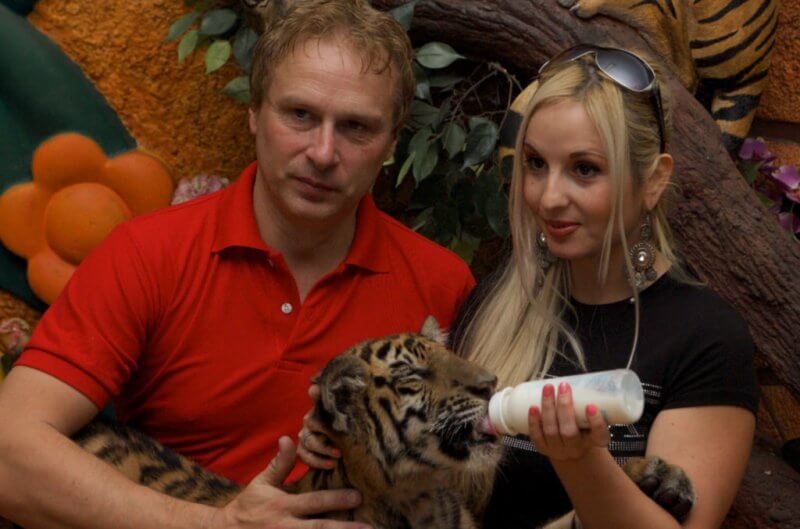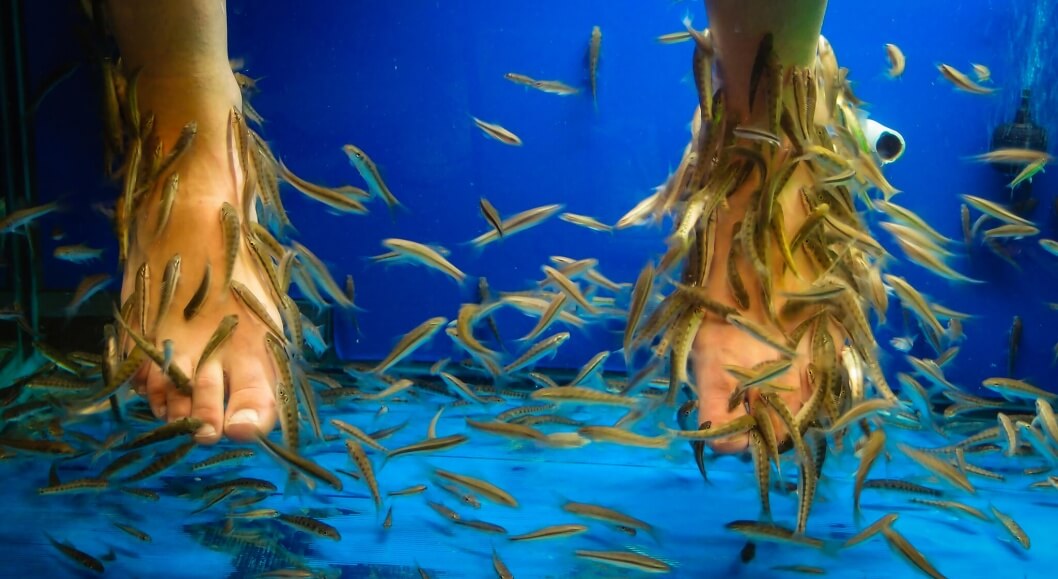How to Be a Compassionate Traveler
Sunscreen? Check. Passport? Check. Compassion? Check!
An explosive report revealed that more than half a million exotic animals are enslaved worldwide in the tourism industry. From selfies with tigers to elephant rides, these activities may be hurting animals more than you know.
Here’s what to avoid if you want to make sure your compassion is packed neatly in your suitcase along with your favorite vegan leather flip-flops.
Elephant Rides
Elephants are intelligent and self-aware animals, and they don’t want to carry camera-toting tourists on their backs. A tourist was killed when an elephant whom he and his daughter were riding at an “elephant park” in Thailand snapped and trampled and gored the man to death. Witnesses reported that shortly before the attack, the mahout (handler) had hit the elephant several times with a bullhook, a weapon resembling a fireplace poker with a sharp hook at one end. Just a week earlier, a mahout at the same facility was caught on tape hitting and taunting an elephant. This elephant, like many before him, finally reached a breaking point.
Selfies With Baby Tigers
What might seem like a harmless photo to you might mean a lifetime of misery for a baby tiger or any other animal forced to pose for pictures at a roadside zoo or other attraction. Baby tigers used at photo attractions are typically torn from their distraught mothers when they are just days old and then subjected to extreme stress and physical abuse. Once these tigers are no longer babies and are too dangerous to handle, they typically end up locked away in cages. Tiger selfies have nothing to do with conservation, despite the claims that tourist-trap operators may make to get you to participate. The animals offered up for selfies are bred for only one reason: to line the pockets of their abusers.
A picture of you with a cute baby tiger might get you a few likes on Instagram, but these selfies come at a high cost to the animals. And remember: It’s not only tigers who suffer for photo ops. Avoid any place that allows people to interact with bears, monkeys, alligators, lions, or any other animal and that charges for a photo op with these animals.
Horse, Donkey, Camel, or Any Other Animal Rides

Riding horses, donkeys, mules, camels, or any other animals is cruel.
Animals are being dragged around and forced to bear the weight of humans, carriages, and tourists’ luggage. In Petra, Jordan, donkeys are made to scale and descend treacherous terrain and stairs. If they hesitate, they’re beaten. You may see signs at tourist destinations asserting high animal-welfare standards, but they’re false and exist to placate tourists. You can avoid putting money into the pockets of animal abusers by steering clear of these rides completely.
Sampling of Civet Coffee and Other ‘Local Delicacies’
Kopi luwak is made from the beans of coffee berries that have been eaten and excreted—yes, you read that right!—by the Asian palm civet. To make this coffee, the civets are typically snatched from their homes in the forest to be imprisoned in tiny, barren cages. They’re deprived of everything that is natural and important to them, including freedom, exercise, space, and even a proper balanced diet.
The worst part of this cruel industry? It’s fueled by tourist attractions that offer samplings and by the exportation of the coffee to other parts of the world. A kopi luwak sampling may sound like an exotic “When in Rome” kind of experience, but drinking civet coffee is just plain cruel.
And it’s not just civets who suffer when tourists are tricked into thinking a cruel beverage or dish is a “local delicacy.” Eating a snake’s still-beating heart and drinking the animal’s blood at tourist stops in Vietnam is called cruel even by the locals, and it’s an activity sought out mostly by Western tourists. The same goes for foie gras in France, where the majority of locals disagree with the force-feeding of ducks and geese.
The best way to travel with compassion? Eat vegan.
Swimming With Dolphins

Just because dolphins look like they’re smiling doesn’t mean that they’re happy to be stuck in tourist-infested tanks, away from their ocean homes, and forced to swim and interact with humans. Being confined to cramped tanks and harassed all day long can be extremely traumatic for dolphins, who are social and intelligent animals who naturally swim up to 60 miles a day with their families when they’re in their ocean homes. Many dolphins develop painful conditions, such as stomach ulcers, and most die prematurely from the stressful conditions of captivity.
Fish Pedicures
Yes, it’s a thing, and it’s as gross and cruel as it sounds. The fish used in these pedicures are starved so that they’re hungry enough to eat the flesh off human feet. And the fish are ultimately discarded as if they were used-up emery boards, not living beings.
Horse-Drawn Carriage Rides
For the animal who is strapped in a harness, surrounded by noisy traffic, and forced to work long hours in the blazing heat and freezing cold, there’s nothing romantic about a horse-drawn carriage ride. Many horses have collapsed under the stress. The list of accidents involving horse-drawn carriages grows every year, so this is definitely a vacay activity to skip for the sake of the horses’ well-being and your own safety.
Visiting Aquariums and Zoos
No zoo or aquarium can begin to replicate animals’ natural homes. Tanks and cages are no place for animals who roam hundreds of miles a day when in the wild. These places teach people that it’s acceptable to interfere with animals and keep them locked up in captivity, where they’re bored, cramped, lonely, and denied all control over their lives. Definitely not a good lesson to teach children.
The great news is that you can still have the best and most compassionate vacation ever by taking advantage of the tons of animal-friendly activities that are available out there.If you want to observe animals, consider visiting or volunteering at an accredited sanctuary. Take photos of sea lions sunbathing in their natural habitat. Go to non-animal circuses, drink local vegan wine, go dancing, go to museums, and more. Check out Veg Travel Buddies, a website that will help hook you up with other traveling vegans, as well as local veg-minded folk. Other great vegan-friendly travel sites include Veg Jaunts and Journeys, Dive The World, Laguna Lodge, and Humane Travel. And, if you’re traveling to the greater Manila area, you have an opportunity to help animals by volunteering with PETA’s KLIP program.
Really, the possibilities for a compassionate vacation are limited only by how great your commitment is to keeping animal suffering out of your itinerary.








